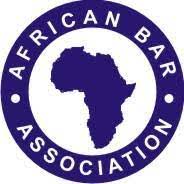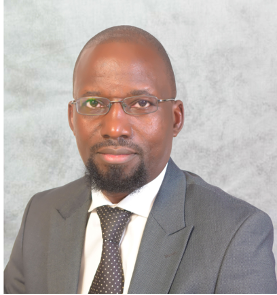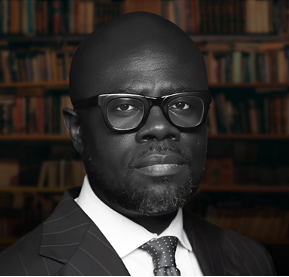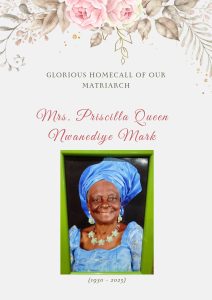The African Bar Association (AfBA) Annual Conference in Accra, Ghana, will feature a compelling session on Reparations—one of the most anticipated discussions under the 2025 conference theme, “Foreign Interests in Africa: Exploitation or Investment?” The session will confront the urgent and evolving global debate on reparations for historic injustices, including slavery, colonial exploitation, systemic discrimination, and illicit intercountry adoptions.
Chaired by Caroline Buisman, the session will bring together eminent panellists such as Britta Redwood, Prof. Adjoa A. Aiyetoro, J.D., Chief Charles Taku, Myriam Bouazdi, and Michelle Oliel. Together, they will explore how legal and moral frameworks can be mobilized to achieve restorative justice for Africa and its diaspora.
Caroline Buisman
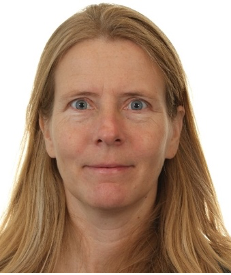
Dr. Caroline Buisman is an expert in international criminal law and procedure. Qualified to practice in New York and Amsterdam, she defended clients before several domestic and international courts and tribunals such as the International Criminal Tribunal for Rwanda, the International Criminal Tribunal for the former Yugoslavia, the Special Court for Sierra Leone and the International Criminal Court. She is widely published and co-edited a book on ‘Principles of Evidence in International Criminal Law’. Between 2019 and May 2024, Dr Buisman led several investigative teams in Iraq (UNITAD), investigating war crimes, crimes against humanity and genocide committed by ISIL. Currently, she coordinates the Fact-Finding Mission for the Sudan within the Office of the High Commissioner for Human Rights.
Britta Redwood
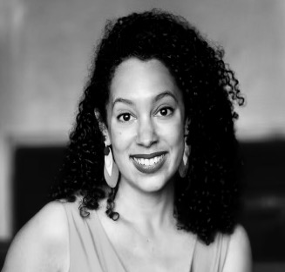
Britta Redwood is an Assistant Professor at Cardozo School of Law in New York, where she teaches courses on international law and reparatory justice. She also served as the Interim Director of the Thurgood Marshall Civil Rights Center at Howard University School of Law. Prior to teaching, she worked at the International Crimes and Accountability program at the European Center for Constitutional and Human Rights and as a legal adviser to the Strategic Litigation Project at the Atlantic Council, specialising in work related to international human rights and international criminal law. Britta Redwood holds a juris doctor from Yale Law School and a B.A. in philosophy from Princeton University.
Prof Adjoa A. Aiyetoro, J.D.
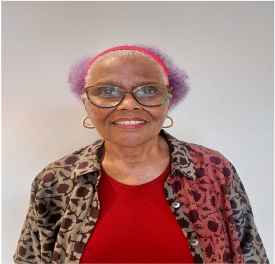
Adjoa A. Aiyetoro is an activist attorney with extensive experience working domestically and internationally to obtain remedies for historic and present day wrongs to people of color, women, prisoners and other oppressed groups. She is a lifetime member of the National Conference of Black Lawyers (NCBL) and has served as co-chairperson of its Board and as its national director. Aiyetoro is also a lifetime member of the National Coalition of Blacks for Reparations in America (NCOBRA) and was its first woman co-Chair. She represented NCOBRA and NCBL on the Reparations Coordinating Committee and was asked to co-chair along with Charles Ogletree and Randall Robinson. Aiyetoro was co-counsel in landmark reparations cases filed by the Committee such as Alexander v. State of Oklahoma seeking reparations for the survivors and their descendants of the 1921 Tulsa Race Massacre. She also was part of the legal team in Randall v. City of Tulsa, representing survivors of the Tulsa Race Massacre, organisations and residents of Tulsa seeking reparations for the destruction of the Black community in Tulsa in 1921 and the ongoing injuries. From 2016-2018, Aiyetoro served on a legal team led by Professor Carlton Waterhouse representing some descendants of enslaved Africans sold in 1838 by the Society of Jesus to save Georgetown University from bankruptcy – Legacy of the GU272 Alliance. Aiyetoro is a member of NCBL’s Reparations Committee and director of NCBL’s Reparations Research Project that in 2024 created a Handbook for Community Organizing- Working to Obtain Reparations: Balancing the Scales of Justice found at ncbl.org/reparations.
Chief Charles Taku
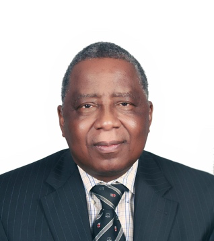
Chief Charles Taku (HRH Fuatabong Achaleke) is Traditional Chief and Great Grand Son of the Bangwa King Fontem Asonganyi (Asunganyi in German Records.) He is an International Lawyer, Lead defence counsel at the International Criminal Court. He is a member for life of the Governing Council of the African Bar Association and formerly President of the International Criminal Court Bar Association.
Myriam Bouazdi
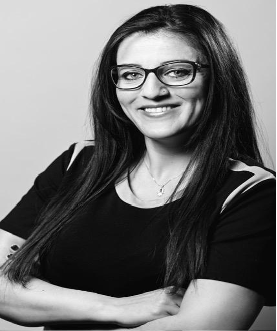
Myriam Bouazdi is an international lawyer with nearly 20 years’ experience advancing transitional justice through work in international criminal, human rights, and humanitarian law. She has served with UN accountability mechanisms, including the IIIM and the Commission of Inquiry on Syria, and previously worked with the International Criminal Tribunal for the former Yugoslavia and International Criminal Tribunal for Rwanda. She has investigated serious violations in Sri Lanka with international NGOs and advises on justice and accountability processes to support societies emerging from conflict and repression.
Michelle Oliel

Michelle Oliel is an international human rights lawyer and child protection specialist. She currently leads the Lori E. Talsky Center for Human Rights at Michigan State University College of Law, where she teaches international criminal law and children’s rights, and leads global research and experiential learning programmes. She is also the Accountability Advisor to the Global Coalition to Protect Education from Attack (GCPEA), where she leads work on advancing accountability for attacks on education in conflict-affected contexts. In addition, she is the Executive Director of the Stahili Foundation, which supports Kenya’s care reform and child protection system strengthening efforts. She has worked for UNICEF and served as a legal adviser and consultant to international and regional bodies, including by providing support to the African Committee of Experts on the Rights and Welfare of the Child.
Reparations, as discussed in this session, will not be limited to financial compensation. Instead, they encompass a broader vision of justice—truth-telling, restitution of cultural heritage, recognition of harm, and guarantees of non-repetition. The dialogue will also delve into the enduring legacies of colonialism and the doctrine of discovery, both of which continue to shape inequalities and global power structures.
Specifically, the session will explore:
- How to provide adequate redress for colonial and slavery-era crimes that created legacies of underdevelopment, racism, and inequality.
- The legal, political, and moral foundations for reparations and guarantees of non-repetition.
Comparative experiences from Africa, the Americas, and Europe in mobilizing law, transitional justice, and civil society for reparatory justice. - The gendered and ongoing dimensions of reparations, including illicit intercountry adoptions.
- Practical pathways for reparations, such as symbolic measures, collective and monetary reparations, and restitution of stolen artifacts.
- The enduring legacy and harm caused by the doctrine of discovery, and advancing reparations beyond financial redress.
- The broader dimensions of justice, including truth-telling and restitution of cultural heritage.
This session aims to move the reparations conversation from rhetoric to responsibility, urging Africa and the international community to confront historical wrongs with sincerity, fairness, and actionable policy reform. It promises to be one of the most consequential dialogues of the AfBA Ghana Conference, setting a moral and legal tone for Africa’s pursuit of historical justice and dignity.

